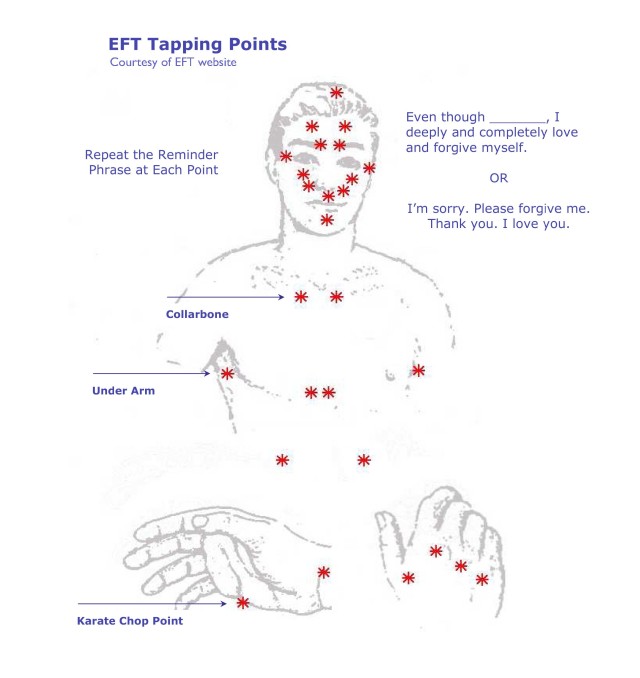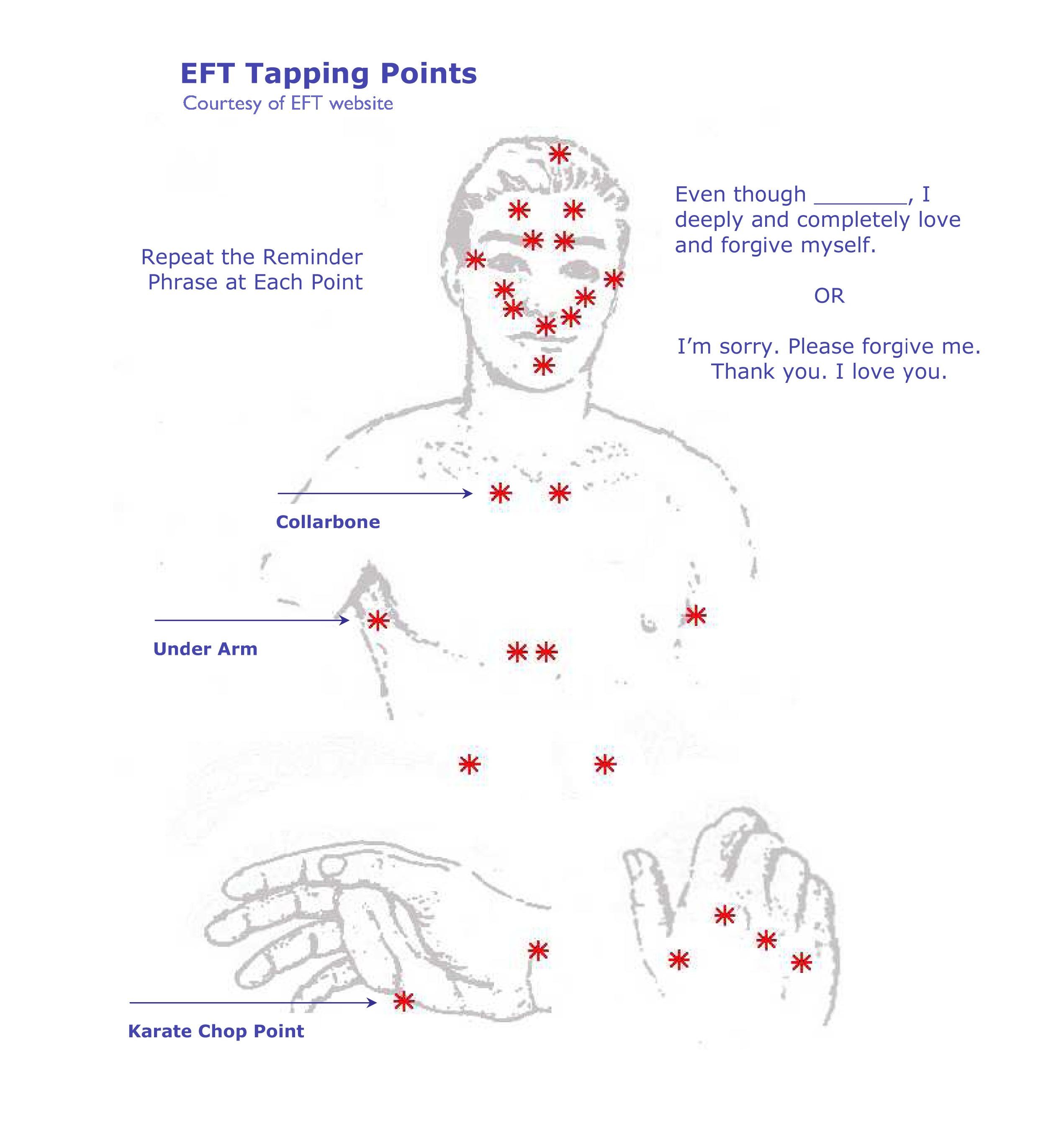
FORT HOOD, Texas - For some it is a quick fix. For others, it is one link in a chain of treatments. Either way, the Emotional Freedom Technique, or "tapping" as it is commonly referred, offers clinicians a useful tool and patients an uncomplicated self-help strategy in combating the emotional effects of PTSD and other disorders.
"It's simple enough to learn and grasp and robust enough that people using even the general techniques can see a great deal of positive effects," said Dr. Jerry Wesch, a clinical psychologist and chief of the Carl R. Darnall Army Medical Center Warrior Combat Stress Reset Program.
The theory behind EFT and other "Tapping" techniques is deceptively simple. According to Wesch, when an emotional or traumatic event is registered in the brain, it creates a neurologic response that the body and the mind remember as negative. With every reminder of that event, the electrical response to the memory through the brain triggers complex emotional and negative responses in the body.
Through tapping, a patient uses their fingers to tap on a series of acupuncture points on the Chinese Medicine meridian lines. These lines are paths of energy throughout the body, on the head, face, hands and torso. Eastern medicine practitioners assert that pressing (or tapping or inserting needles) on specific points on these lines can alter the body's energy flow and electrical responses, allowing the brain to reinterpret the stimulus in a less negative way.
While the philosophy is easy to grasp, the reality is difficult to prove. Practitioners of Western medicine can be tough to convince without definitive proof. Subjective and anecdotal experience from those that teach the tapping technique appears very positive.
According to Wesch, in some cases such as phobias, results can be seen immediately and have life-long lasting effects. But the mechanism is still somewhat difficult to pinpoint, as with many alternative and complementary modalities.
"People get caught up in the explanation instead of the results," Wesch said. "This is very common when working with alternative medicines."
Col. Thomas Yarber, chief of the Resiliency and Restoration Center at Fort Hood, says the proof is in the success. Yarber, who has been actively applying the technique for more than a year, instructs many of his patients in the use of tapping to reduce anxiety and even goes through his own tapping routine when in crowded areas.
"For some people, they just want to see the evidence before they believe," he said.
One former patient at the WCSRP cares less about evidence and more about the results. Former Spec. and WCSRP graduate Alexander Onzures was wounded two years ago in a roadside bomb in Afghanistan and is now out of the Army due to his injuries. Even after graduating the program, he still uses the techniques taught by Wesch.
"It's helpful. If I am feeling anxious, it can help get rid of the nervousness and let me move forward," he said.
Onzures said he would recommend tapping and the WCSRP to anyone who was having difficulty dealing with the long-term effects of war.
While Onzures is just one of many that have had success with the tapping technique, Wesch is quick to highlight that it is only one tool of a multi dimensional treatment plan at the WCSRP center. Other treatments consist of group and individual counseling, acupuncture, yoga and biofeedback among several others.
"Tapping is just one tool for self care that fits with the battery of activities to help regulate the nervous system," Wesch said.

Social Sharing